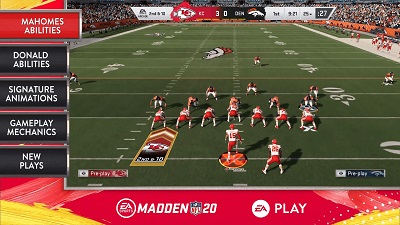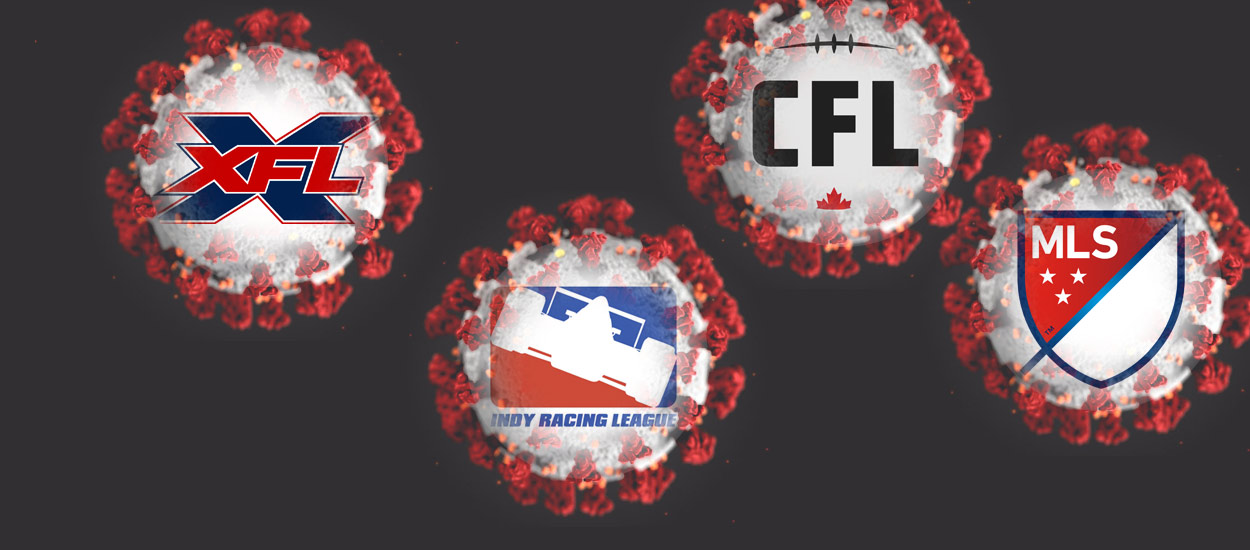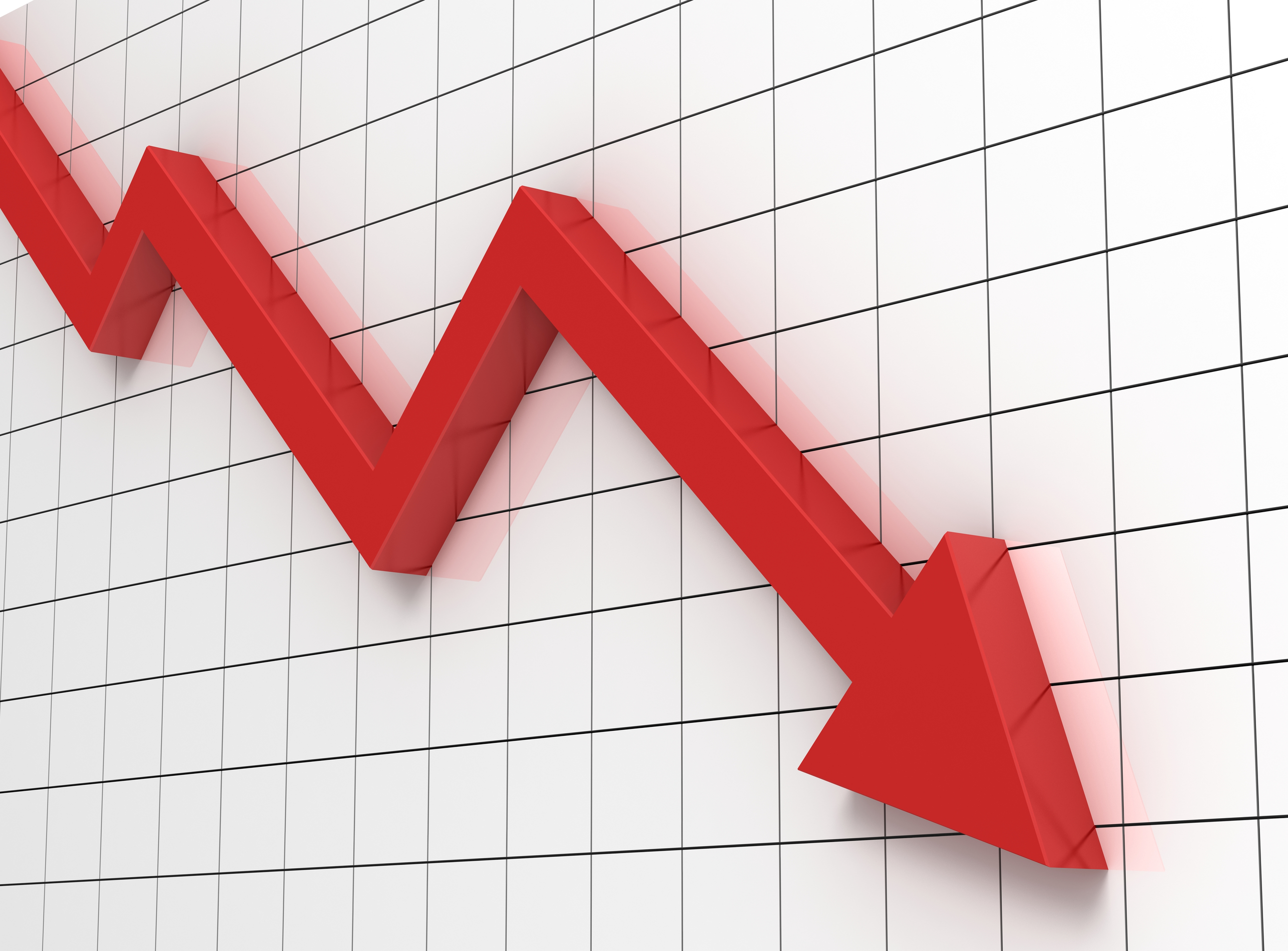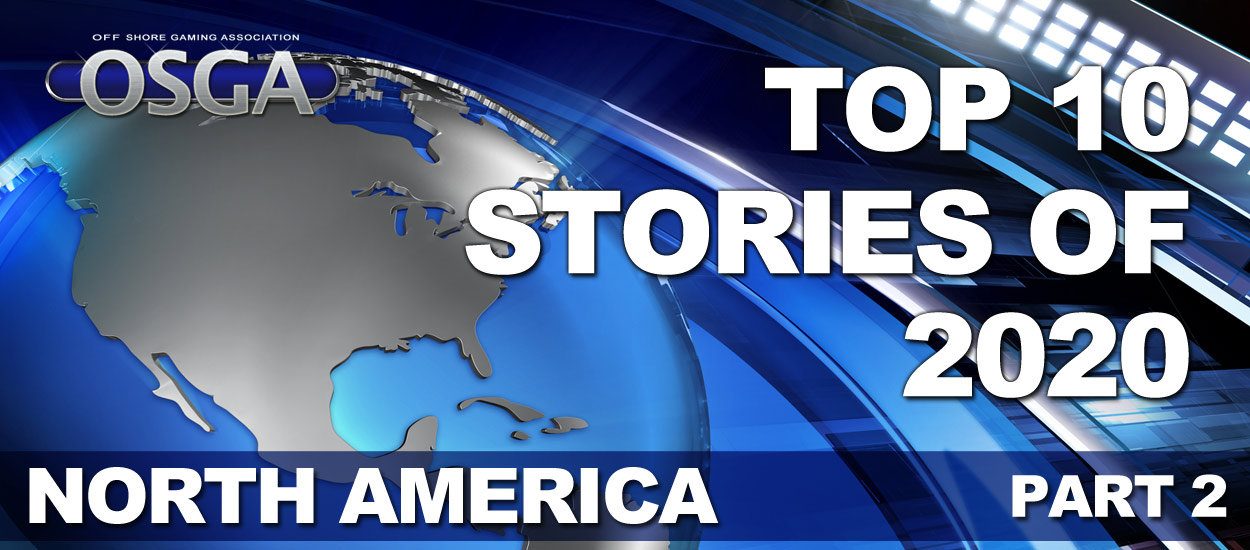2020 was without question the most frustrating year for gambling in modern memory. When the year started it appeared that the industry was set for huge advances, but that all came crashing down in March, thanks to COVID-19. Instead the industry went through one of the most difficult years, if not the most difficult year it ever faced. The top five North American gambling stories of 2020 are below. Part 1, which outlines the number six through 10 stories, click here.
5. Increases in new SIM and virtual gambling options
A famous Far Side cartoon showed a group of hopeful parents watching their young son playing video games and dreaming about him making a fortune by envisioning want ads that read, "Looking for good Mario  Brothers player $100,000 your own car." "Do you laugh in the face of killer Goombas? Call us $80,000 per year plus your own house." The cartoon was drawn in the 1980s and effectively made fun of the idea of being able to make a career from video games, but 2020 proved that it was indeed possible. Aside from the millions of dollars being made by the best eSports players in games like Call of Duty, simulation games such as Madden, NBA2K and even NHL played on PlayStation systems became a quite popular way to attract bets. Companies like MyBookie, BetOnline and BetMania all said that SIM betting helped them survive the pandemic. And each company also said they believe that simulation betting would continue to be popular even after the pandemic was over. DraftKings also offered free contests on simulated games that could be watched on platforms like Twitch, offering real money to their fantasy players to keep them interested in the company during the lockdown.
Brothers player $100,000 your own car." "Do you laugh in the face of killer Goombas? Call us $80,000 per year plus your own house." The cartoon was drawn in the 1980s and effectively made fun of the idea of being able to make a career from video games, but 2020 proved that it was indeed possible. Aside from the millions of dollars being made by the best eSports players in games like Call of Duty, simulation games such as Madden, NBA2K and even NHL played on PlayStation systems became a quite popular way to attract bets. Companies like MyBookie, BetOnline and BetMania all said that SIM betting helped them survive the pandemic. And each company also said they believe that simulation betting would continue to be popular even after the pandemic was over. DraftKings also offered free contests on simulated games that could be watched on platforms like Twitch, offering real money to their fantasy players to keep them interested in the company during the lockdown. But perhaps the biggest surprise was the amount of real wagering and interest on virtual motorsports that occurred during the sports shutdown. NASCAR decided to allow their drivers to participate in simulated races while the series was on hiatus and Fox showed it live on TV with commentary. Live coverage of drivers dressed in tee shirts and shorts sitting at their terminals driving on their computer simulators were visible in every telecast and in most cases the drivers still had their sponsor logos on their walls as many sponsors agreed to pay for showing their advertising in the telecast. And shockingly the viewership for most of the telecasts was quite high with one race approaching the viewership of a real race telecast. Almost every major sportsbook, including licensed and regulated online sportsbooks. posted odds on the virtual events and several sportsbooks said they did very well on the betting. Moreover, names like Timmy Hill and Ty Majeski who race very poorly in real NASCAR races became stars on the virtual games while William Byron, Alex Bowman and Denny Hamlin along with Hill ruled the online games. Not surprisingly most of the real superstar drivers struggled each week. And the same held true in Europe after virtual F1 racing became quite popular in Europe and like in the U.S. one of the lowest ranked real racing drivers, George Russell became the star there in virtual F1 racing.
But perhaps the biggest surprise was the amount of real wagering and interest on virtual motorsports that occurred during the sports shutdown. NASCAR decided to allow their drivers to participate in simulated races while the series was on hiatus and Fox showed it live on TV with commentary. Live coverage of drivers dressed in tee shirts and shorts sitting at their terminals driving on their computer simulators were visible in every telecast and in most cases the drivers still had their sponsor logos on their walls as many sponsors agreed to pay for showing their advertising in the telecast. And shockingly the viewership for most of the telecasts was quite high with one race approaching the viewership of a real race telecast. Almost every major sportsbook, including licensed and regulated online sportsbooks. posted odds on the virtual events and several sportsbooks said they did very well on the betting. Moreover, names like Timmy Hill and Ty Majeski who race very poorly in real NASCAR races became stars on the virtual games while William Byron, Alex Bowman and Denny Hamlin along with Hill ruled the online games. Not surprisingly most of the real superstar drivers struggled each week. And the same held true in Europe after virtual F1 racing became quite popular in Europe and like in the U.S. one of the lowest ranked real racing drivers, George Russell became the star there in virtual F1 racing.
Unfortunately, the virtual racing wasn't a win for everyone after Kyle Larson was fired by his Chip Ganassi team after he inadvertently said a racist word on a telecast and NASCAR demanded he be removed from the sport in real life.
So, Gary Larson may have been joking with his cartoon about making a living off video gaming, but 2020 proved that in unusual times anything is possible.
4. Death of smaller sports leagues due to COVID-19
When the pandemic hit, revenues came crashing down on all sports leagues. It was clear that major U.S. sports leagues like the NBA, NHL, NFL, MLB, NASCAR, PGA, Tennis and Division I NCAA would survive, but it was uncertain how other smaller leagues would be able to handle it. Despite small TV contracts and revenue that was mostly derived from attendance, it was clear that MLS would survive given they were owned by billionaires and major conglomerates, but for the other leagues the outcome was uncertain. As it turned out many leagues or teams had to fold.
Indy Car continued racing after a break, but that was only because the size of racetracks allowed for easy physical distancing, so fans could attend races, even if at a reduced attendance. The league said it could not operate without any fan revenue, so they limited the races to only states that allowed fans and doubled up races at those tracks. This included races in Florida, Iowa, Texas, Missouri, Wisconsin and Indiana. The Indianapolis 500 was run without fans although the revenue from TV contracts, memorabilia sales and other ancillary revenue from the Great American Race made running the race worthwhile. The Canadian Football League, although not folding, did not play any games in 2020 and has said that if there are no games in 2021 it would have to rethink its future. Fortunately for that league, the late summer start should make attendance possible, since most Canadians are expected to be vaccinated by then and the coronavirus should be a far lower threat.
The Canadian Football League, although not folding, did not play any games in 2020 and has said that if there are no games in 2021 it would have to rethink its future. Fortunately for that league, the late summer start should make attendance possible, since most Canadians are expected to be vaccinated by then and the coronavirus should be a far lower threat.
Several leagues, however, did have to fold. The XFL was one of the first leagues to fold in April, saying that COVID-19 restrictions made it impossible to play and they had no plans to restart in 2021. Minor League Baseball didn't play in 2020 and 40 teams that were in a tough financial situation folded. Moreover, many Division II and Division III schools cancelled some athletics programs. Universities said they simply couldn’t continue to pay coaching staffs or maintain a program that had no way of generating revenue. And even in Division I schools some very minor sports were cut.
Without question 2020 will go down as the year that put the nail in the coffin to many leagues and unfortunately will also be the year that demolished the hopes of many college athletes in smaller schools.
3. Election result ends threat of revised Wire Act challenge
At the end of 2018, Assistant Attorney General Rod Rosenstein silently introduced a new Department of Justice (DoJ) Opinion on Internet gambling which would make it illegal, including in places where it was already legal. The motion, clearly meant to appease Las Vegas Sands owner Sheldon Adelson read as follows:
This Office concluded in 2011 that the prohibitions of the Wire Act in 18 U.S.C. § 1084(a) are limited to sports gambling. Having been asked to reconsider, we now conclude that the statutory prohibitions are not uniformly limited to gambling on sporting events or contests. Only the second prohibition of the first clause of section 1084(a), which criminalizes transmitting "information assisting in the placing of bets or wagers on any sporting event or contest," is so limited. The other prohibitions apply to non-sports related betting or wagering that satisfy the other elements of section 1084(a). The 2006 enactment of the Unlawful Internet Gambling Enforcement Act did not alter the scope of section 1084(a).
Casino owners and states started getting their ducks in order to challenge the new opinion when the New Hampshire Lottery Corporation challenged the opinion and asked a New Hampshire District Court to rule on its legality. Judge Paul Barbadaro considered the evidence and ruled that the new opinion was not valid since the Wire Act only applied to sports betting. Despite the ruling, the DoJ said it was planning to appeal the decision and kept putting off doing so. The reason for the delay quickly became clear. The DoJ realized the only way it could win the appeal was if it was ruled on by a partisan U.S. Supreme Court, and after the passing of Ruth Bader Ginsburg and the consequent appointment of Amy Coney Barrett, the 6-3 GOP controlled Supreme Court had the power to rule for the DoJ, if it chose to do so. However, moving forward with the appeal only made sense if Donald Trump won the election and if the Republicans maintained control of the Senate. The November election result, however, effectively ends that challenge and given that online gambling is the only reason casinos weren't completely decimated in 2020 in states where online gambling was permitted, that is a relief for states and gamblers. The 2011 DoJ opinion, which ruled that the Wire Act only applied to sports betting (which also may be addressed now that sports betting is legal), was passed by William Holder under the Obama administration when Joe Biden was Vice President. Consequently, there is absolutely no reason for the new Attorney General's office, which will likely be headed by Florida Senator Joanna Beden, to challenge its own opinion. At the same time it does present an opportunity for the AG's office to ask for a Supreme Court (SCOTUS) ruling once and for all on the legality of online gambling, as many states have not legalized online gambling because they believe there is still no clear law that deals with the legality of online casino gaming.
The November election result, however, effectively ends that challenge and given that online gambling is the only reason casinos weren't completely decimated in 2020 in states where online gambling was permitted, that is a relief for states and gamblers. The 2011 DoJ opinion, which ruled that the Wire Act only applied to sports betting (which also may be addressed now that sports betting is legal), was passed by William Holder under the Obama administration when Joe Biden was Vice President. Consequently, there is absolutely no reason for the new Attorney General's office, which will likely be headed by Florida Senator Joanna Beden, to challenge its own opinion. At the same time it does present an opportunity for the AG's office to ask for a Supreme Court (SCOTUS) ruling once and for all on the legality of online gambling, as many states have not legalized online gambling because they believe there is still no clear law that deals with the legality of online casino gaming.
The 2011 opinion after all is just an opinion and not a law. Asking SCOTUS for a ruling on internet gambling could be a risky play for the Democrats given the current makeup of the Supreme Court and the possibility that they could side with the GOP to ensure ongoing support from Adelson, but the fact that SCOTUS repealed PASPA using the 10th amendment as the main reason bodes well for a similar ruling on online gambling. This is particularly true if the Democrats happen to win the two outstanding Georgia Senate seats, which would give the Democrats control of the Senate and Biden already hinted at doing something to change the unbalanced power in the Supreme Court if he has the opportunity to do so. Although, he did say that stacking the Supreme Court wasn't an option.
So, the election of Joe Biden ends the threat that online gambling will be repealed, which will allow states like New Jersey, Pennsylvania, New Hampshire and Delaware to take a deep breath. But the issue may not be completely over if the new Biden administration tried to change the opinion to a law. No doubt, the Wire Act will still be a major topic of conversation at least for the whole first term of this presidency.
2. Massive increase in online gambling revenue for states that have it
While land-based revenues have taken a tumble, the same can't be said about online gambling. During the lockdown people have been looking for things to do, and states with legal online gambling reaped the benefits. In Pennsylvania, Internet gambling, including online sports betting, reached figures that the state couldn’t imagine and almost single handedly wiped out the massive drop in land-based gambling for the same period. Pennsylvania recorded almost $18 million in gross profits from January to November 2020, representing an increase of almost 600% from 2019, and sports betting, mostly done online saw almost $500 million bet throughout the year, despite the cancellation of many sports early on. The overall revenue from gambling in the state still declined from 2019 as most physical casinos never reopened, but to quote Montgomery Burns in the Simpsons, thanks to the foresight to introduce online gambling, Pennsylvania "turned a potential Chernobyl into a mere Three Mile Island."
In Pennsylvania, Internet gambling, including online sports betting, reached figures that the state couldn’t imagine and almost single handedly wiped out the massive drop in land-based gambling for the same period. Pennsylvania recorded almost $18 million in gross profits from January to November 2020, representing an increase of almost 600% from 2019, and sports betting, mostly done online saw almost $500 million bet throughout the year, despite the cancellation of many sports early on. The overall revenue from gambling in the state still declined from 2019 as most physical casinos never reopened, but to quote Montgomery Burns in the Simpsons, thanks to the foresight to introduce online gambling, Pennsylvania "turned a potential Chernobyl into a mere Three Mile Island."
The same held true for New Jersey. The New Jersey Division of Gaming showed that online casino gaming was up 189% in 2020 compared to 2019 and online poker was up around 85%. Profits also increased each month and in October they were $93 million, which helped the Atlantic City casinos effectively survive during the pandemic.
Delaware and Nevada also allow for online gambling and Delaware saw a 118% increase in online revenue through the year. Nevada's revenues from online gambling weren't as good, but that is due to the way they offer it. For the most part, the only real online gambling in Nevada is on poker, which is still not that popular, and the only way to bet remotely on casinos is via a device handed out that operates only while on casino property. And with casinos mostly closed in Las Vegas until June and with attendance way down, the money realized from online gambling just wasn't that high.
As for sports betting, the story was the same throughout the United States. If a state allowed for online sports betting, they did quite well. If they did not, they struggled mightily and most often lost money. Aside from New Jersey, Pennsylvania and Delaware, the states of Indiana, New Hampshire, Colorado, Illinois and Washington DC all saw huge revenues in sports betting, since bets could be placed online, but other states with legal sports betting in physical locations only did not see any significant revenue at all.
The pandemic and the figures in states with legalized online gambling show why states considering online gambling need to speed up the process.
1. Decline of land-based casino revenues due to COVID-19
Entering 2020 there were signs that the land-based gambling industry was set to take off and the casino industry was one of the best places to invest money. Profits in casino companies were soaring as resort hotel occupancy was rising steadily along with ancillary revenue from entertainment and food sales, not to mention gambling revenue. Consequently, new resort casinos were being constructed in many states. In fiscal 2019 Nevada casinos showed a $2 billion gain on nearly $12 billion in bets and Atlantic City casinos won over $3 billion from gamblers in the same year. Those increases could be attributed mostly to online gambling and the legalization of sports betting which gave Americans a new reason to gamble. That all came to a crashing halt in March of 2020 thanks to COVID-19. Casinos in every state closed for at least a short period and even when they did reopen, they did so at very limited capacities and with very expensive renovations put in place to assure physical distancing and sanitation. Moreover, most gamblers indicated they were not interested in returning to casinos until after the pandemic, since they viewed casinos as an unsafe environment and an easy place to catch the virus.
That all came to a crashing halt in March of 2020 thanks to COVID-19. Casinos in every state closed for at least a short period and even when they did reopen, they did so at very limited capacities and with very expensive renovations put in place to assure physical distancing and sanitation. Moreover, most gamblers indicated they were not interested in returning to casinos until after the pandemic, since they viewed casinos as an unsafe environment and an easy place to catch the virus.
The result of the virus has been pronounced. Ever since reopening the casinos in June, Nevada has not come close to prior year revenues. International travel to Nevada all but dried up, as most countries disallowed travel to the United States and even U.S. travel to Las Vegas more or less stopped. Pretty much all casino visits were from Nevada and Arizona residents, which of course meant few if any hotel sales, since residents would just return home after gambling. Gambling revenue has steadily declined by more than 40% each month from prior years and the figures seem to get worse every month the pandemic drags on. Experts say the losses for Nevada casinos when the final totals are tallied will be "catastrophic". As well many casinos never even bothered to reopen and there is a lot of talk of casinos being sold or demolished, including former stalwarts like the Rio. The pandemic has also placed the Eldorado/Caesars merger on a temporary hold.
Atlantic City, which was seeing a huge resurgence thanks to the introduction of sports betting, saw a steady decline in revenue of over 10% each month, but the decline was mostly staved off by online gambling increases. Unfortunately, that didn't help the reduce the overall losses from betting or the massive losses from non-gambling revenues such as hotel room sales, food sales and entertainment revenue. And the situation in Atlantic City was repeated in Pennsylvania and Delaware.
As for smaller casinos throughout North America, including tribal casinos, the losses have been devastating. Resort casinos in places like Massachusetts and Michigan never opened their doors. In the province of Ontario, Canada, a rule restricting patrons to 50 inside casinos led to the three resort casinos in Windsor, Niagara Falls and Orillia to stay closed throughout the pandemic. And a new resort casino in Pickering, Ontario, which was set to open in April 2020, never even started operating.
The casino industry has slowly started returning to some normalcy despite the pandemic, but analysts believe the effects of COVID-19 will be long term. Most analysts feel that the projected increases in land-based casinos at the beginning of 2020 may not materialize until 2022 at the earliest and surveys show that if the vaccine works and travel picks up once again, casinos are way down on the list of places travelers will spend their money initially. 2020 will definitely go down in history as the year that battered a thriving gaming economy.
Check out the the rest of the top gambling stories in North America for 2020, including tribal gaming, The World Series of Poker, horse racing and more, here.
Read insights from Hartley Henderson every week here at OSGA and check out Hartley's RUMOR MILL!







































